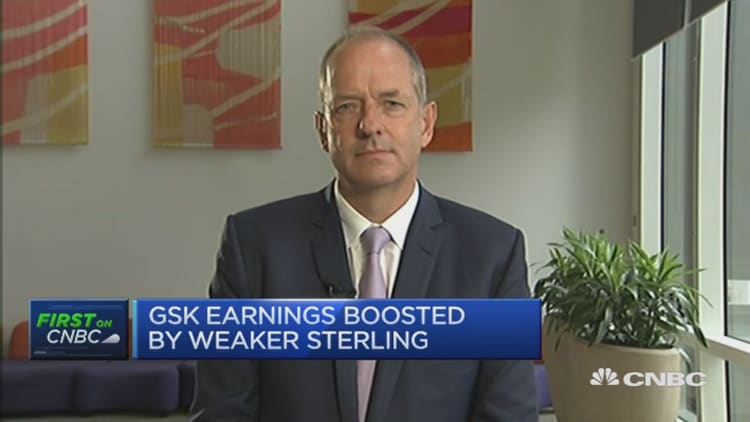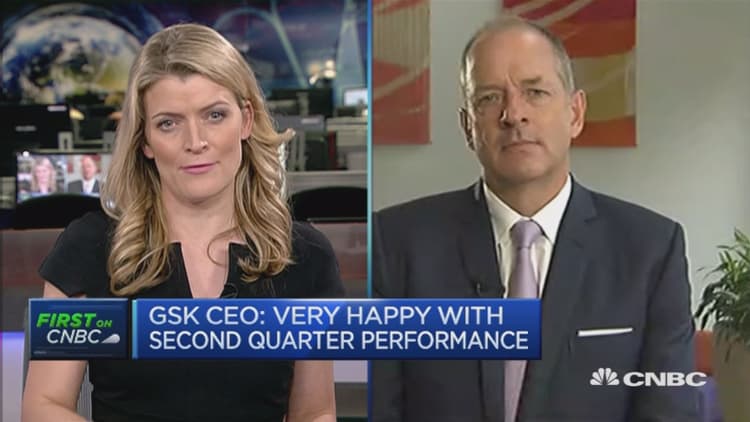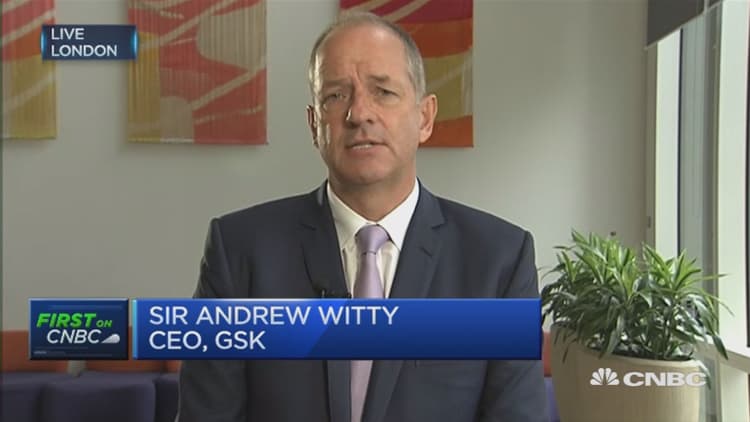


U.K. pharma giant GlaxoSmithKline highlighted the effects of the falling value of sterling on its second-quarter results with the company's chief executive, Andrew Witty, forecast a "huge tailwind" for the company on the back of the weaker pound.
Speaking to CNBC, Witty said he expected a "19 percent tailwind" on the company's earnings if sterling remains on or around the same level it was at June 30.
While the company a net loss for the quarter of £492 million ($644 million) against a £115 million profit a year ago on "the impact of significant Sterling currency adjustment" of liabilities, GSK stressed that it would benefit in 2016 from sterling's slide as most of its sales are overseas.
GSK added that it has continued to monitor the impact of the U.K.'s vote to leave the European Union and had plans in place to mitigate any effects.
Witty, who had said he wanted the U.K. to remain in the European Union on regulation grounds, reinforced this message by telling CNBC "the vote's happened, we are all getting on with life.
"Everything else is business as usual and were getting on with it."
Witty also discussed the potential of bio electronics, an emerging field of science where diseases can be treated with electricity and electronic implants. Witty said the company has been investing in the area for the last five or six years.
"We've been doing a lot of experimentation in the pre-clinical phase and I would expect us to move into the clinical phase later this year," he said. "This is an area we believe has tremendous potential for the future."
Witty predicted that bio electronics could become an entirely new industry. Currently, GSK is looking at several applications for the technology, including ways to treat female sterility, diabetes and arthritis.
"What's so exciting here is we've always thought of medicine as chemistry, but actually there's a great opportunity to talk about electrical medicine as a whole new world of potential medicines," he added.
"If it works, and let's see, the sky's the limit."
Earlier Wednesday, the UK company, which recorded group sales of £6.5 billion in the second quarter, announced a £275 million of new investments in three drug manufacturing sites in the country, in a move to signal its confidence in the U.K.
The company has also has bought the global rights to an experimental drug from Johnson & Johnson for up to £175 million ($230 million), raising its bet on a new generation of biotech medicines for severe asthma.
GSK plans to investigate the drug's potential in Phase II studies starting next year. The medicine is unlikely to reach the market before around 2023, according to Dave Allen, GSK's head of respiratory R&D.
Reuters contributed to this report.


